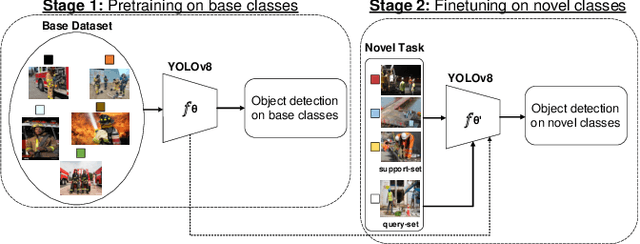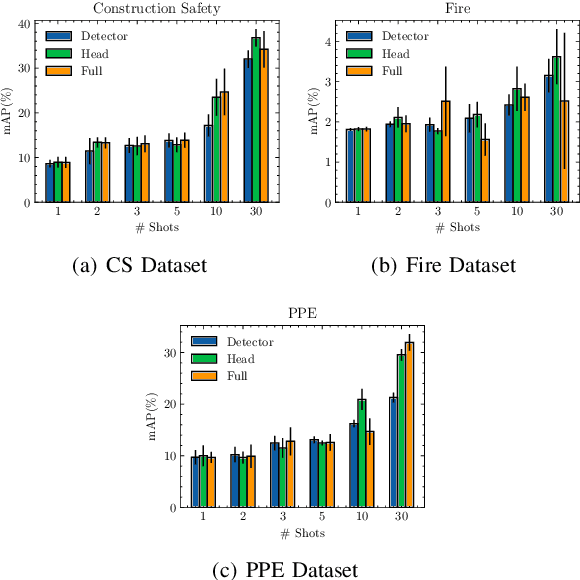Evaluating the Energy Efficiency of Few-Shot Learning for Object Detection in Industrial Settings
Paper and Code
Mar 11, 2024



In the ever-evolving era of Artificial Intelligence (AI), model performance has constituted a key metric driving innovation, leading to an exponential growth in model size and complexity. However, sustainability and energy efficiency have been critical requirements during deployment in contemporary industrial settings, necessitating the use of data-efficient approaches such as few-shot learning. In this paper, to alleviate the burden of lengthy model training and minimize energy consumption, a finetuning approach to adapt standard object detection models to downstream tasks is examined. Subsequently, a thorough case study and evaluation of the energy demands of the developed models, applied in object detection benchmark datasets from volatile industrial environments is presented. Specifically, different finetuning strategies as well as utilization of ancillary evaluation data during training are examined, and the trade-off between performance and efficiency is highlighted in this low-data regime. Finally, this paper introduces a novel way to quantify this trade-off through a customized Efficiency Factor metric.
 Add to Chrome
Add to Chrome Add to Firefox
Add to Firefox Add to Edge
Add to Edge